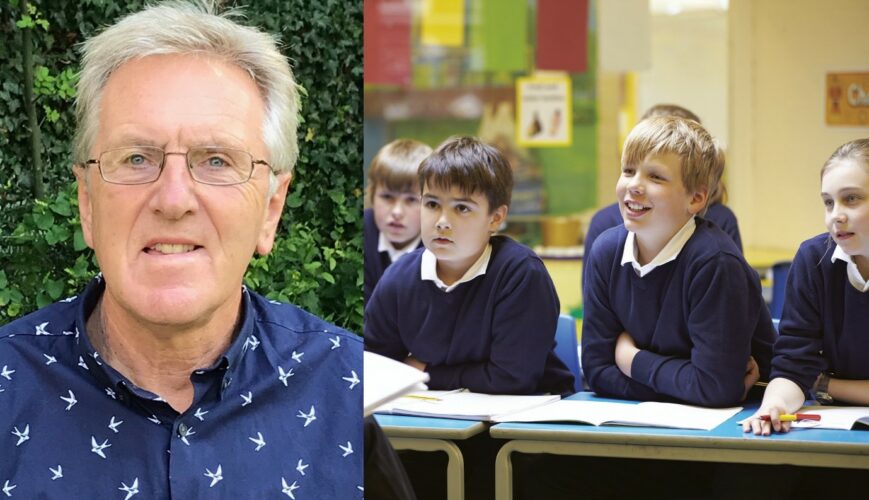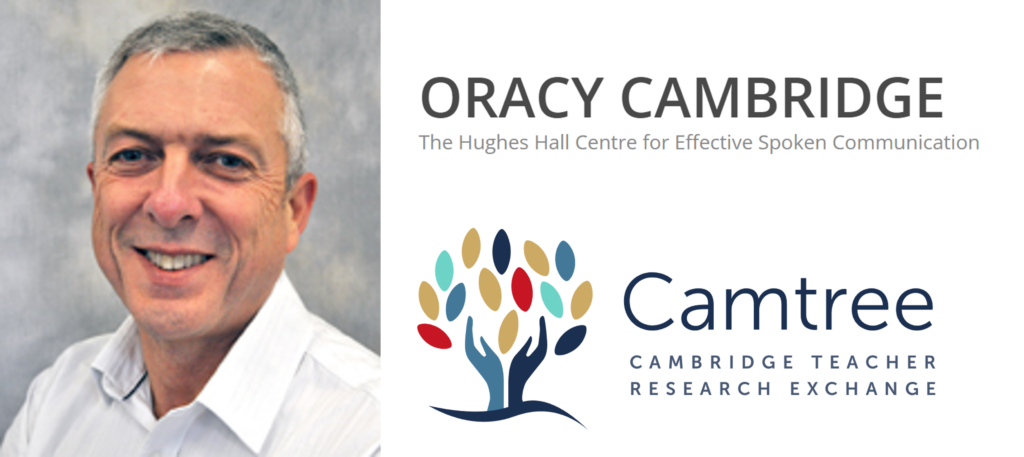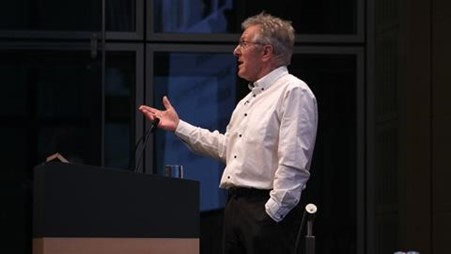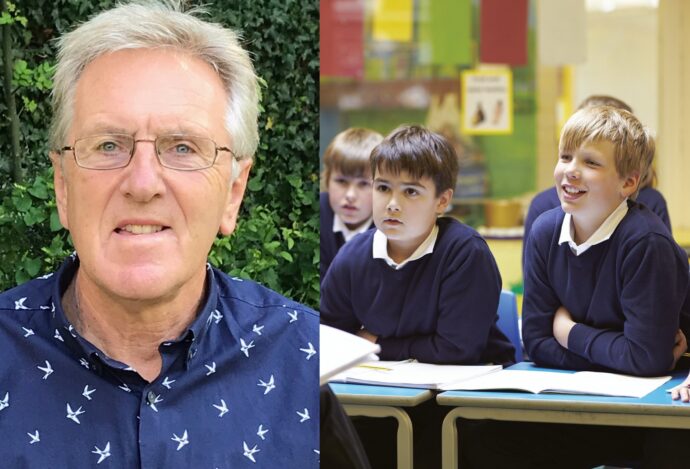Hughes Hall Oracy experts welcome national focus on effective spoken communication in the classroom, and in the curriculum.
In an article last week (5 July) The Times conveyed Labour Leader, Keir Starmer’s plans to reform education, centred on the inclusion of spoken communication lessons for all children, and a belief that oracy can help address the barriers that reinforce disadvantage in the UK.
Hughes Hall has led national and international research into oracy, highlighting its importance in schools and in curricula, and establishing Oracy Cambridge – the Centre for Effective Spoken Communication in 2015, under the directorship of Neil Mercer, Hughes Hall Fellow and Emeritus Professor of Education at the University of Cambridge.
Joining Keir Starmer in Gillingham earlier this month where he detailed his plans, Professor Mercer responded to oracy’s central role in discussions: “Today is significant – for oracy, for schools and educators, but more importantly, for children across the UK. Teaching oracy skills in every school would significantly improve educational outcomes. The research evidence is there and we know how to teach spoken language skills. A new educational policy can make this happen for all children.”

“Oracy must join literacy and numeracy as foundational subjects underpinning education across the country” said Professor Neil Mercer, Hughes Hall Fellow, and Director of Oracy Cambridge.
Media reports conveyed Mr Starmer’s conviction that all children should be able to speak well and express themselves in order to thrive in life; and that Oracy is a skill that can and must be taught.
Neil Mercer responded to the ever-growing national interest oracy: “It is critical that all people – not just those from privileged backgrounds – develop the ability to speak confidently in public, to present effective and persuasive arguments through speech, and to examine critically but constructively the arguments presented by others. Oracy must join literacy and numeracy as foundational subjects underpinning education across the country.”
Leading educationalist, oracy specialist and Hughes Hall Fellow, Dr Pete Dudley, also welcomed Labour’s commitments: “Effective speaking and listening – oracy – should be a gamechanger for raising the bar for all and closing the disadvantage gap.” Dr Dudley is an Associate Professor with Cambridge University’s Faculty of Education and a Fellow of Hughes Hall. He joined Oracy Cambridge in 2015 and established the Cambridge Teacher Research Exchange (Camtree) at Hughes Hall in 2021, a platform for practitioner researchers in education to meet, develop and publish their research.

Pete Dudley’s belief in the importance of collaborative enquiry and dialogue in education system improvement is a key reason for his membership of Oracy Cambridge and for his current work creating and leading Camtree.
Oracy Cambridge has worked extensively and internationally with teachers, researchers and education policy makers to promote oracy in schools and in wider society. This has included development of the Oracy Skills Framework, A publication on The Development of Oracy Skills in School-aged Learners, and comprehensive recommendations for the inclusion of Oracy across the Welsh curriculum.
In 2021, Professor Neil Mercer was awarded British Educational Research Association’s highest award in recognition of his outstanding contribution to educational research. The Association awards the John Nisbet Fellowship to those deemed to have made an outstanding contribution to educational research over their career; for encouraging educational research and its application for the improvement of practice and public benefit.
Professor Mercer and Oracy Cambridge’s transformative work continues to forge policy and practice improvements in the UK and abroad. The Oracy All-Party Parliamentary Group published its Inquiry report (Speak for Change) in 2021 which emphasised the importance of developing students’ confidence and competence in spoken language, particularly as the disruption to children’s education over the pandemic widened the already stubborn language gap.

Neil Mercer, keynote speaker at this year’s Voice 21 conference, the UK’s oracy education charity.
The Oracy Cambridge team continues to work with schools to transform the learning and life chances of young people through talk, and working towards oracy having a higher status in the education system.
Ends.
- For more information on Oracy Cambridge, see: https://oracycambridge.org/.
- For information on Professor Neil Mercer: https://www.hughes.cam.ac.uk/about/our-people/seniors-members/neil-mercer/.
- For more information on Dr Pete Dudley: https://www.hughes.cam.ac.uk/about/our-people/seniors-members/pete-dudley/
- To contact Professor Neil Mercer, email nmm31@cam.ac.uk
- To contact Dr Pete Dudley, email pjd45@cam.ac.uk
11.7.23





